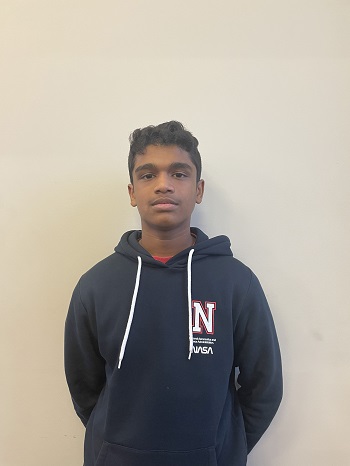Check the French version of this article
“I find it tiring”, “you get used to it”, children of immigrants are often in charge of being translators for their parents. This phenomenon, also known as language brokering, is becoming normalized in France. These children are required to accompany their parents to various socio-professional appointments. A responsibility that can be difficult or on the contrary make the child proud. Discussion with translators often in the shadow of the immigration phenomenon…
Anna Diop, a young woman from Clamart and family referent at the Youri Gagarine center in La Courneuve is a specialist in this field. During her university studies, she wrote a thesis on child interpreters in the 13th arrondissement of Paris in 2017.
In charge of identifying potential problems related to access to law in this same district, she realized that the language barrier was a major obstacle, “One way of approaching the issue of access to law is to focus on children when their parents do not speak French. They are the closest to their parents’ problems because they experience them on a daily basis. They are obliged to act as intermediaries between the parents and the professionals” she explains.
Table of Contents
A daily life like no other
Like most children of immigrants, the role of translator was assigned to Shantash, Yun and Lamine at an early age. Respectively thirteen, twenty-two and forty-three, they agreed to tell their stories: “Administrative papers were my father’s worst nightmare, and obviously in Senegalese culture, we often leave it to the older brother” explains Lamine.
Eldest of four children, Lamine was born in France in 1979 to Senegalese parents and grew up in a Parisian suburb. His father left Senegal when he was seventeen years old, at the end of the 60’s in hope of improving his Arabic language skills in Egypt. However, he ended up settling in France.
He was quite comfortable with the French language, which allowed him to get a job. After obtaining his green card, he brought his wife to France in the winter of 1977.
Only knowing Mandingo, one of the many languages spoken in Senegal, she tried to learn French by watching television, but it remains imperfect. Taking French classes was an option but unfortunately family life and work prevented her from learning properly.
And because of the lack of learning, French became more difficult to master with time. Because Lamine’s father worked a lot, it was up to him to take care of administrative papers: “Everything regarding social security, rent, taxes… I already knew how to do that when I was eight or nine years old. I also had to take care of my mother’s application for a residence permit when I was fifteen. I went to the prefecture to stand in line at 4 a.m and waited until 8 a.m for it to open“.
France is not Yun’s country of birth but became her home. And like other translators, she had to face responsibilities a child should not have to deal with. Coming from Fuijan, a Chinese province, at the age of 10, “I didn’t grow up with my parents but with my grandparents. My father migrated to France when I was one year old and my mother joined him when I was three. There were a lot more opportunities in terms of job offers and the currency was higher than ours.”

Upon her arrival, Yun joined a class named CLIN. The goal of such class is to take care of students arriving in France without a sufficient level of the French language. “I learned much faster than my parents. It’s much easier to learn when you are a child. Because I went to school here. All my friends are French so I stopped speaking my native language except with my parents and some Chinese friends.”
Whether it was the language barrier or kid’s fear of the unknown, integration was hard for Yun. She too had to face the unknown when she dealt with administrative papers for the first time. If the child is often in charge of paperwork, there is no one behind to train them. “I felt more of an adult than any of my classmates. When I was in fifth grade, I had to change school and enrolled on my own. It’s quite stressful when you have to not only understand but but also to translate to your parents. There is no one to help us. ” Yun explained that even if her mother has a strong accent, she still has a slightly better grasp of the French language than her father.
While Shantash has less perspective on his role as a translator, he confides that the task can often be stressful. He is the eldest of two sisters, both of his parents immigrated from Sri Lanka in 2007. His father is a cook and his mother is jobless “I don’t mind translating. I am here all thanks to them. It’s my duty to help and it’s also a habit,” he says.

When it comes to homework, the three translators came to the same conclusion.
“I never asked my parents for help.”
Often powerless in the face of the language barrier, these parents looked for solutions. Library and friends often proved themselves to be options.
YUN: “When I needed help with homework, I asked my friends but I never went to my parents.“
LAMINE: “My mother tried her best to make sure we had as many tools as possible to answer the questions we had about homework and other things. She bought us encyclopedias. She did her everything in her power so that we could have the best results in school.“
SHANTASH: “I don’t ask my parents for help with my homework, but the adults at the library.“
At the Aimé-Césaire library in La Courneuve, bilingual books are available for both parents and children to read and learn together. Chinese, Arabic but also Tamil, there is a book for everyone.
“We are on a territory where approximately 85 different languages are spoken. So it doesn’t shock me. It’s been common here for years. I’ve always known about it and I think it’s a good initiative.” says Catherine, a librarian.
Conversation workshops for adults have also been set up at the library. A way to meet other French learners, to discuss and support each other.
A translation, but at what cost?
“It stressed me out when I was younger, I was afraid of mistranslating because it would distort everything” Yun explains.
Language brokering is a phenomenon that is most often found in the suburbs, but not only. This phenomenon is perceived differently depending on the territories.
Generally, it is a phenomenon that can be found in more precarious territories, where the child is forced to help their parents, often at the expense of their extracurricular activities.
“Sometimes, we’re a little frustrated because when our friends go to the movies, to recreation center or even later at parties… we were stuck at home. If it wasn’t paperwork then it was our homework. Sometimes we’d sneak out with my brothers but never far away. We stayed in the neighborhood. On the weekends I had to work with my father in addition to his job as a duty officer. It was rare to have me time.” says Lamine.
Yun shares a similar experience: “It happened so many times. There were times I had plans with my friends, my mother would ask me to go to the bank with her and so I had to cancel my friends because I knew it would take the whole day.”
If their roles as translators often prevented them from enjoying their free time, they were all adamant. School is everything. Having migrated in order to provide a better future for their children, parents would never intentionally get in the way of their children’s education. An education for which they left their country “No way we would ever miss school. School was a priority. My mother had this frustration of not mastering the language and not being able to find the least tiring jobs… she wanted us to avoid ending up in the same situation, us who had been lucky enough to be born in France. She wanted to to give us as many means as possible to go to school” says Lamine.
Children translators aren’t a new phenomenon but their mental health has always been at risk. They’re children whose parents depend on to translate but also to interpret a new culture to which they are not accustomed with. These situations can lead to a reversal of parent/child relationships also called parentification.
Indeed, in The language of Therapy” (1985), Simon, Stierlin and Wynne define parentification as as: “The assignment of a parental role to one or more children in a family role reversal family system in relation to a disruption of intergenerational boundaries. »
When the term is mentioned, Yun’s eyes widened, “Yes, Yes, absolutely. I do a lot of things for my parents and sometimes I feel like I have more responsibilities than they do. And it’s true that there are things that are so obvious to do, like filling out forms, and they can’t do it. I think it’s important to know how to do” She also admitted that she has often felt alone facing responsibilities that weren’t hers.
A 2010 American study made by Denise M. Castro, Rebecca A. Jones and Hamid Mirsalimi proved that children who have had more parental role as a child, are more likely to develop an impostor syndrome. People with the syndrome express a form of self-doubt that denies their personal success and accomplishment.
It was brought to light by two American psychologists, Pauline Rose Clance and Suzanne Ament Imes in 1978, it is a syndrome found in child interpreters as a consequence of language brokering. “It happens to me a lot. I’ll arrive at a new company and I’ll always feel like I’m not doing things right one hundred percent. I feel like I don’t deserve my job, but It’s weird because I know myself and I know I am confident“
Lamine disagrees, for him it is not an imposter syndrome. He is often satisfied when he achieves a personal project, but when it comes to the family, the reasoning is different.
“The big brother has duties. You can’t expect to be thanked, it’s your job, you have to do it and that’s how I took it. That’s why today, I’m not necessarily expecting congratulations or waiting for encouragement when I accomplish a task at work or in my life as a father. I do it because I know I have to do it, it needs to be done,” he says.
In their respective cultures, thanking can sometimes be difficult for parents. Instead, they make sure to thank their children through actions. Among the three translators, gifts and food are the most common ways they were thanked. “Sometimes they say thank you when it’s really important, otherwise they don’t. They won’t necessarily say anything but when mom makes me food I know they are grateful. ” says Shantash.
A significant advantage
In the book Responsibilities of children in Latino immigrant homes (2003), a survey of 280 sixth-graders (approximately 11 to 12 years old) who are children translators from Latino families were found to perform significantly better results at reading and math tests than their non-translator peers.
Lamine and Yun are proof of this. As a developer and a student in management and finance, they are able to speak several languages and consider themselves lucky. This translator life has allowed them to work in world-renowned stores and companies.
“It’s clearly an advantage to have been the help I was for my parents. My siblings didn’t have to face the same tasks so they had a hard time when they were faced with their first tax form, whereas I had already done that kind of thing. The only disadvantage is that I didn’t have the adolescence that some people had, I didn’t enjoy it as much as I would have liked, that’s why I want it to be different for my kids. “ says Lamine.
Yun has even taken advantage of her bilingualism to help other Chinese people who are having a hard time with the French language. She carries out what she calls “missions” to help the Chinese community. In parallel to their respective studies and work, they keep on helping their parents.
Each of these translators have been subjected to different experiences that forged the people they are today. They have never been ashamed of their parents or their cultural heritage.
“I sometimes resented my parents for not speaking French, but they were still my parents and I have never been ashamed. We live in a country where there is a lot of diversity and I think a lot of people have already been through this and I think there is nothing to be ashamed of” concludes Yun.
A phenomenon to be followed closely because of the current wave of massive immigration of Ukrainian families all over Europe. Children who could also be brought to live a similar daily life to those of Yun, Shantash and Lamine. They invite the children or adults in their situation not to take this role in a wrong way but to look for the positive aspects.
Source photo: - https://www.aecf.org/blog/who-are-the-children-in-immigrant-families





